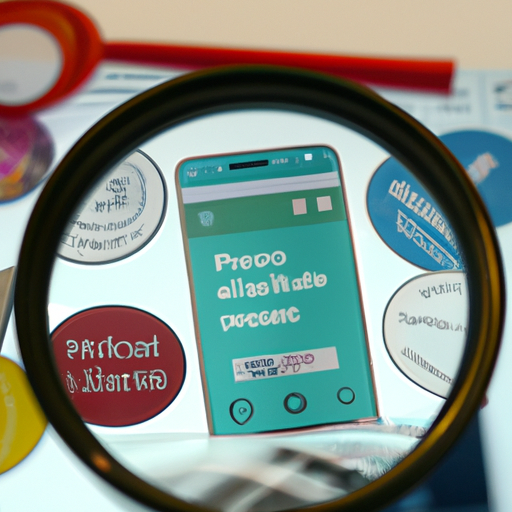In a era where information spreads at lightning speed, social media has become a hub for the dissemination of news and opinions. However, with the surge of unreliable sources and sensationalist content, the need for fact-checking has become increasingly vital. This article explores the importance of fact-checking in the realm of social media, uncovering the potential legal repercussions that arise from spreading false information. As a business owner, it is crucial to understand how fact-checking can safeguard your reputation and shield you from legal liabilities. Read on to discover the significance of verifying social media claims and how it can protect your business interests.
Social Media Claims Fact-checking
In the age of information overload, social media has become a breeding ground for misinformation and false claims. This phenomenon has prompted the need for fact-checking, a process aimed at verifying the accuracy of social media claims. Fact-checking plays a crucial role in ensuring that businesses, as well as individuals, have access to reliable and trustworthy information. In this article, we will explore the definition and evolution of fact-checking in the context of social media, the importance of fact-checking social media claims, the role of social media platforms in fact-checking, the process of fact-checking social media claims, the common challenges faced in fact-checking, the impact of misinformation on businesses, how fact-checking helps businesses make informed decisions, examples of successful fact-checking initiatives, and provide tips for businesses to verify social media claims.
What is fact-checking in the context of social media?
Fact-checking refers to the process of evaluating the accuracy and veracity of claims made on social media platforms. It involves conducting thorough research and analysis to determine whether the information is supported by evidence and reliable sources. The goal of fact-checking is to ensure that false or misleading information does not spread unchecked and to provide the public with accurate and reliable information.
Evolution of fact-checking in the digital age
With the rise of social media, the dissemination of false information has become more pervasive than ever before. This has led to the emergence of fact-checking as a necessary tool to combat misinformation. Fact-checking organizations and independent fact-checkers have taken on the responsibility of verifying the claims made on social media platforms and debunking false information. The digital age has provided the means for fact-checkers to reach a broad audience and counteract the spread of misinformation effectively.
Fact-checking social media claims
Fact-checking social media claims involves scrutinizing the accuracy of information shared on various platforms, such as Facebook, Twitter, Instagram, and YouTube. It requires fact-checkers to delve into the details of each claim, verifying the facts against reliable sources, and providing a rating or assessment of the claim’s accuracy. The aim is to provide users with verified information that they can rely on when making decisions or sharing information with others.
The importance of fact-checking social media claims
Spread of misinformation on social media platforms
Social media platforms have become hotbeds for the rapid dissemination of false information. The accessibility and ease of sharing content have allowed misinformation to spread like wildfire, often reaching a wide audience before fact-checkers can debunk it. This spreading of misinformation can have severe consequences, prompting the need for fact-checking to counteract its damaging effects.
Potential consequences of uncritical sharing
When false information is shared uncritically on social media platforms, it can have far-reaching consequences. Individuals may make decisions based on inaccurate information, leading to financial losses, reputational damage, or even harm to physical well-being. Businesses, in particular, are vulnerable to the impact of misinformation, as it can damage their brand reputation, hinder their decision-making processes, and jeopardize their financial stability.
Protecting the reputation of businesses
For businesses, protecting their reputation is paramount. False or misleading claims circulating on social media can tarnish a company’s image and erode customer trust. By engaging in fact-checking, businesses can ensure that they are equipped with accurate information and can address false claims promptly. This proactive approach helps preserve their reputation and maintain customer loyalty.

The role of social media platforms in fact-checking
Efforts by social media platforms to combat misinformation
Recognizing the detrimental effects of misinformation, social media platforms have taken steps to combat its spread. Platforms such as Facebook, Twitter, and YouTube have implemented various measures to flag, label, or remove false or misleading content. They have also partnered with fact-checking organizations and independent fact-checkers to verify the accuracy of claims made on their platforms.
Collaboration with independent fact-checkers
Social media platforms have recognized the expertise of independent fact-checkers and have collaborated with them to fight against misinformation. These collaborations involve providing fact-checkers with tools and resources to assess the accuracy of information shared on their platforms. By working together, social media platforms and fact-checkers can provide users with reliable and trustworthy information, reducing the impact of false claims.
Challenges faced by social media platforms in fact-checking
Fact-checking on social media platforms presents unique challenges. The sheer volume of content and the rapid pace at which it is shared make it difficult to keep up with the influx of information. Additionally, the boundaries between misinformation, free speech, and opinion can be blurred, requiring platforms to strike a delicate balance between fact-checking and maintaining a space for diverse viewpoints. Addressing these challenges is a complex task, and social media platforms are continuously working to improve their fact-checking mechanisms.
The process of fact-checking social media claims
Identifying potentially false claims
The first step in fact-checking social media claims is identifying potentially false or misleading information. Fact-checkers rely on various sources such as user reports, algorithmic detection, and their own research to flag claims that warrant further investigation.
Gathering evidence and verifying information
Once a claim is flagged, fact-checkers embark on a thorough investigation. They gather evidence from reliable sources, such as academic studies, reputable news outlets, or expert opinions. They carefully examine the details of the claim and cross-reference the information against multiple sources to ensure accuracy.
Evaluating the credibility of sources
Fact-checkers meticulously evaluate the credibility of the sources used to support or debunk a claim. They consider the reputation and expertise of the source, the methodology employed, and any potential biases that may influence the information provided. This rigorous evaluation ensures that only reliable and unbiased sources are used to assess the accuracy of the claim.
Reaching a conclusion and providing a rating
Based on the evidence gathered and the evaluation of sources, fact-checkers reach a conclusion regarding the accuracy of the social media claim. They provide a rating or assessment, such as “true,” “mostly true,” “partly true,” “mostly false,” or “false,” to communicate the level of accuracy to the public. This rating helps users make informed decisions and avoid spreading false information.

Common challenges in fact-checking social media claims
Limited access to reliable sources
Fact-checkers often face challenges when it comes to accessing reliable sources. Misinformation may originate from anonymous or unreliable sources, making it difficult to verify the accuracy of the information. Fact-checkers must rely on their expertise and available resources to navigate these challenges and provide accurate assessments.
Fast-paced nature of social media
The fast-paced nature of social media presents a significant challenge for fact-checkers. False information can spread rapidly, reaching countless users within minutes or even seconds. Fact-checkers must work swiftly to verify claims and debunk false information before it gains traction and becomes widely accepted as truth.
Dealing with manipulated media and deepfakes
Advancements in technology have given rise to manipulated media and deepfakes, further complicating the fact-checking process. Fact-checkers must employ advanced techniques and tools to detect and debunk media that has been altered or manipulated. This requires expertise and continuous adaptation to stay ahead of emerging technologies used by those spreading misinformation.
Addressing the spread of conspiracy theories
Conspiracy theories often gain traction on social media platforms, fueled by the echo chambers and algorithmic amplification that can occur online. Fact-checkers face the challenge of disentangling complex conspiracy narratives and providing evidence-based rebuttals. Addressing these theories not only requires fact-checking skills but also a nuanced understanding of the underlying social and psychological factors that contribute to their spread.
The impact of misinformation on businesses
Loss of customer trust
Misinformation can erode the trust that customers have in a business. False claims or rumors about a company’s products, services, or business practices can lead to a loss of confidence in the brand. Customers may choose to take their business elsewhere, resulting in financial losses and a damaged reputation.
Financial and legal implications
Misinformation can have significant financial and legal implications for businesses. False claims about a product’s efficacy or safety may lead to lawsuits or regulatory action. Additionally, businesses may incur costs to address and mitigate the impact of false claims, such as launching public relations campaigns or hiring legal counsel.
Damaged reputation and brand image
A business’s reputation and brand image are vital assets that can be severely damaged by misinformation. False claims circulating on social media can tarnish a company’s reputation, leading to decreased customer loyalty, negative publicity, and a decline in sales. This can have long-lasting effects on a business’s success and profitability.
How fact-checking helps businesses make informed decisions
Identifying potential risks and scams
Fact-checking enables businesses to identify potential risks and scams circulating on social media. By verifying the accuracy of claims related to their industry or competitors, businesses can assess the potential impact on their operations and make informed decisions to mitigate risks.
Supporting evidence-based decision-making
In an era where information is abundant but not always reliable, fact-checking provides businesses with the necessary tools to make evidence-based decisions. By having access to verified and accurate information, businesses can evaluate market trends, consumer sentiment, and industry developments more effectively.
Minimizing legal liabilities
Fact-checking helps businesses minimize legal liabilities associated with false or misleading claims. By verifying the accuracy of information before making statements or sharing content, businesses can mitigate the risk of defamation lawsuits and regulatory penalties.
Protecting brand reputation
A strong brand reputation is crucial for business success. Fact-checking allows businesses to protect their brand reputation by addressing false claims promptly. By providing accurate information and debunking false narratives, businesses can maintain their credibility and the trust of their customers.
Examples of successful fact-checking initiatives
Collaborative efforts by fact-checkers and businesses
Fact-checkers have collaborated with businesses to address false claims and debunk misinformation. For example, when false rumors circulated about a popular food product’s harmful effects, a fact-checking organization partnered with the company to conduct independent tests and publish the results. This collaboration helped dispel misinformation and reinforced the company’s commitment to transparency and consumer safety.
Impact of fact-checking in public discourse
Fact-checking has had a significant impact on public discourse, shaping the way information is consumed and shared. By debunking false claims and providing accurate information, fact-checkers have played a crucial role in correcting narratives and preventing the spread of misinformation. Their efforts have fostered a more informed and critical public discourse.
Case studies of prominent fact-checking organizations
Prominent fact-checking organizations have made significant contributions to combating misinformation. For example, organizations such as Snopes, Politifact, and FactCheck.org have established themselves as trusted sources of accurate information. Their rigorous fact-checking processes and commitment to transparency have set the standard for fact-checking initiatives worldwide.

Tips for businesses to verify social media claims
-
Cross-reference information: When encountering a social media claim, cross-reference the information with reliable sources to ensure its accuracy.
-
Seek expert opinions: Consult experts in the relevant field to obtain reliable and trustworthy information. Experts can provide insights and clarify any doubts or misconceptions.
-
Follow fact-checking organizations: Stay informed by following reputable fact-checking organizations or subscribing to their newsletters. These organizations often debunk popular social media claims and provide accurate information.
-
Verify before sharing: Before sharing information on social media, take the time to verify its accuracy. Sharing false or misleading information can have negative consequences for your business’s reputation and credibility.
-
Promote critical thinking: Educate your employees and stakeholders on the importance of critical thinking and information evaluation. Encourage them to question claims and verify information before accepting it as fact.
Final thoughts and recommendations
The battle against misinformation on social media continues, and fact-checking is a critical tool in this fight. To protect your business’s reputation and ensure informed decision-making, it is crucial to engage in fact-checking and verify social media claims. By critically evaluating information, seeking reliable sources, and collaborating with reputable fact-checkers, businesses can navigate the complex landscape of social media and make sound decisions based on accurate and verified information.
FAQs
Q1: How can fact-checking help businesses address false claims about their products or services? Fact-checking allows businesses to debunk false claims and defend their products or services against misinformation. By providing accurate information and evidence, businesses can preserve their reputation and mitigate the impact of false claims.
Q2: Can businesses face legal consequences for sharing false information on social media? Yes, businesses can face legal consequences for sharing false information on social media. Depending on the jurisdiction, sharing false information may lead to defamation lawsuits, regulatory penalties, or other legal liabilities. Fact-checking helps businesses minimize these risks by ensuring that the information they share is accurate and supported by evidence.
Q3: How can fact-checking initiatives collaborate with businesses to combat misinformation? Fact-checking initiatives can collaborate with businesses by conducting independent tests, verifying claims, and publishing accurate information. By combining their expertise and resources, fact-checking organizations and businesses can debunk false claims and provide the public with reliable information.
Q4: Which fact-checking organizations are known for their rigorous processes and transparency? Prominent fact-checking organizations such as Snopes, Politifact, and FactCheck.org are known for their rigorous fact-checking processes and commitment to transparency. These organizations have established themselves as trusted sources of accurate information, making them valuable resources for businesses and the public.
Q5: How can businesses promote critical thinking and information evaluation among their employees? Businesses can promote critical thinking and information evaluation among their employees by providing training and resources on media literacy and fact-checking. Encouraging employees to question claims, verify information, and seek reliable sources can help foster a culture of critical thinking within the organization.


